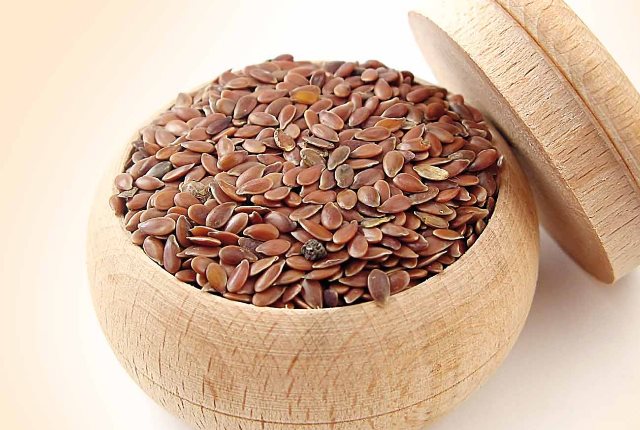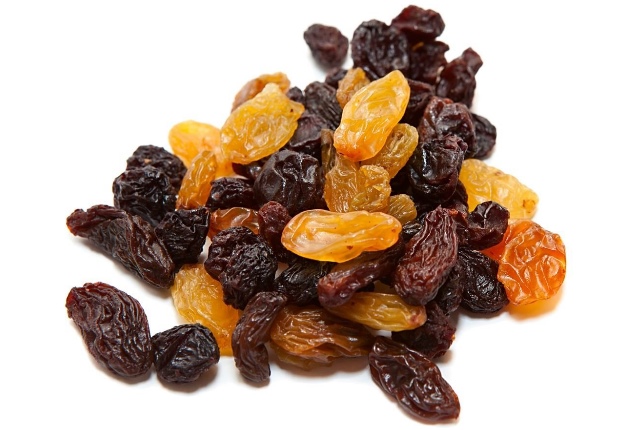One does not realize the havoc that a constipated digestive system can create. When one experiences it, only then can the importance of smooth passage of stool be understood.
There are times when we all get into this problem of not being able to pass the stool for a day or two. If the frequency of passing the stool is thrice or less in a week, then we call it a digestive disorder and look for laxatives to cure constipation.
Best Home Remedies With Natural Laxative
Natural laxatives can be broadly put into certain categories, such as stimulant laxatives, mild laxatives, diet laxatives, and purgative laxatives.
1. Psyllium
Psyllium is a bulk laxative. It enlarges the bulk of the stool so as to ease its exit. In addition, it also makes the stool smooth for the comfortable passage. Psyllium is available as a raw husk or converted into laxative fiber supplement. The popular supplement is called Metamucil. It is popular because it tastes good because of some additives. Otherwise untreated psyllium is equally good and is cost effective [1].
The first prerequisite of all the fiber laxatives is that they should be eaten with a generous dose of water. Flax seed is a safe laxative. The best way of taking it is by mixing it in water, preferably warm and straightway eating. One must drink at least a glass of water after eating psyllium.
2. Flax Seed
Flax seed has been found to be a mild laxative. If used in combination with psyllium, it gets good results. Various studies have shown a marked improvement in the bowel movements, when flax seed was eaten. Ground flax seed was also used for patients suffering from constipation due to irritable bowel syndrome (IBS-C). The studies saw steady improvement in symptoms for a study that lasted 6 months.
In a day one should consume 2 tbsp of flax seed. But care should be taken not to start that much dose at once. It should be increased gradually. It is essential to drink a lots of water along with flax seed. It has a tasty nutty smell.It can be eaten in many ways. Add it to your diet. Toast the seeds and put them in salads, yogurt, vegetables, cereals and breads. They can be relished in a meatloaf too. Grind them into a powder and add with ease into any dish. Easily available in health stores, they can even be bought in grocery shops [2].
3. Senna
Senna comes under the category of strong purgative laxative. It purges the bowels. American Herbal Products Association recommends the use of senna as a laxative, but says that check before you eat senna. If it contains senna leaf then restrict its use to a few days at a stretch, preferably a week or two. However, senna fruit is a gentler laxative, hence can be used without fear.
They say that though it is perfectly alright to use even senna leaf, but be watchful for abdominal pain and diarrhea.Pregnant and lactating women should also check whether they should use senna or not. Senna is available as an over-the-counter laxative, but only for people above the age of two years. When one talks about the constipation in the elderly, it is best to use a combination of flax seed and psyllium. Everybody should know that long term use of senna is not recommended [3].
Its tea is very effective for constipation, but is bitter in taste. If one has to continue it for more than a week, it is better to consume it under the supervision of a herbal doctor. But it has been observed that people start using senna for months and even years. This can trigger the onset of chronic diarrhea. It leads to potassium depletion, which in turn can weaken the muscle and can damage the liver and kidneys.
4. Buckthorn (Cascara Sagrada)
Buckthorn plant has yielded cascara sagrada to Native Americans for centuries. They have been using bark of a particular species of buckthorn (rhamnus pushiana) to derive cascara sagrada. The organic compounds responsible for the laxative effect are anthraquinones.Casa sagrada is available over-the-counter. But you need to consult the expert, if you want to use it for long term. It is known to increase the chances for colorectal cancer and hepatitis [4] .
5. Rhubarb
It is a strong laxative, the part of the plant to be used as a laxative is root, and it has been used for this purpose for 5000 years. The roots can cure even chronic constipation. Though not to be used by pregnant or nursing mothers, it can be used by all. The active organic component responsible for laxative effect are anthraquinones.
The commercially available laxatives extract anthraquinones from rhubarb. In addition it also contains an acid, tannin which produces laxative effect in combination with anthraquinones. They make the motility of the intestines more efficient to push the hard stool move easily through them. Though it has a very mild effect as a laxative, still if used without any constipation, it can induce diarrhea [5].
6. Dandelion
Dandelion is a mild laxative, according to University of Maryland Medical Center. It does not have bulk-forming quality like psyllium. Mild laxatives are to be taken when only a bit of push is required for the stool to pass. The root of dandelion is boiled for about 10 minutes.A cup of tea is to be taken thrice a day till the constipation goes away. A herbalist Mr Jethro Kloss recommends drinking tea of about 30 gm root powder steeped in about half a liter of water for about 15 minutes. Strain and drink its tea [6].
7. Raisins
Raisins are fibrous and they swell with water and ease the constipated stool. When eaten, the fiber content of the raisins eases the passage of stool, hence treats constipation [7].
8. Chickweed
Chickweed can be added to the salads, it soothes the intestines. Bran, rich is almost fully fiber if added to cereal can be a powerful laxative. Eat brown rice, whole grains, fruits and vegetables to get rid of constipation. Fruits like figs and prunes are specially good. Among the green leafy vegetables, spinach soup is the best [8].









